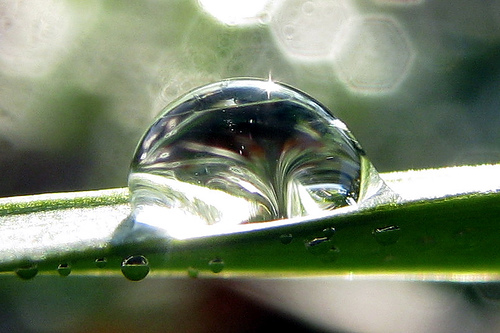FWP:
SETS == A,B
SMILE/LAUGHTER: {27,4}
For background see S. R. Faruqi's choices. For more on Ghalib's unpublished verses, see the discussion in {4,8x}.
The commentators point out the imagery of the verse: the 'crack of dawn' is like a smile, while the dewdrops can be seen as pearly teeth (which may be revealed in a 'teeth-baring smile'). For more on these images, see {67,1}.
The efforts made by humans-- or indeed, by 'existence' itself-- to achieve sociability and conviviality are an occasion for sarcastic laughter. Such laughter could be that of an outside observer, or even that of the participants themselves, in the course of their doomed attempts at enjoyment. After this broad generality, we have to wait (under mushairah performance conditions) and hope for illumination from the second line.
Then the second line appears-- as perhaps an echo, an illustration, or an explanation of the first line. There could be other relationships as well; in an 'A,B' verse like this, it's left up to us to decide. But certainly the word fur.sat (see the definition above) creates at least two possible kinds of smile/laughter. If we take fur.sat to mean 'leisure', then in their doomed 'sociability-striving', people hardly have any time at all to produce and cultivate even a smile or a laugh. The amount of time they have is like the interval between the sun rising and the dew disappearing-- that is to say, almost no time at all.
And if we take fur.sat to mean 'occasion', then the smile is on the lips not of the people who seek sociability, but of some (Sufistically?) thoughtful observer, whose melancholy knowledge that after sunrise the dew evaporates almost instantly causes him to smile compassionately (or derisively, or both) at these impossible, doomed aspirations.

Asi:
Oh Asad, the world's, or existence's, sociability-striving is fit to be laughed at and mocked. You know what this dawn and dew are. The dawn has the leisure/interval of a smile/laugh, and so does the night. That is, every day the dawn, with the aspect of derision, all at once always laughs at the world's sociability-striving, and so does the night. The 'smile of the dawn' [;xandah-e .sub;h] is accepted among the poets; he has said 'smile of the dew' because the simile of white teeth is used for dewdrops. For this reason he has called the dew the 'laughter of the dew'.
== Asi, p. 262